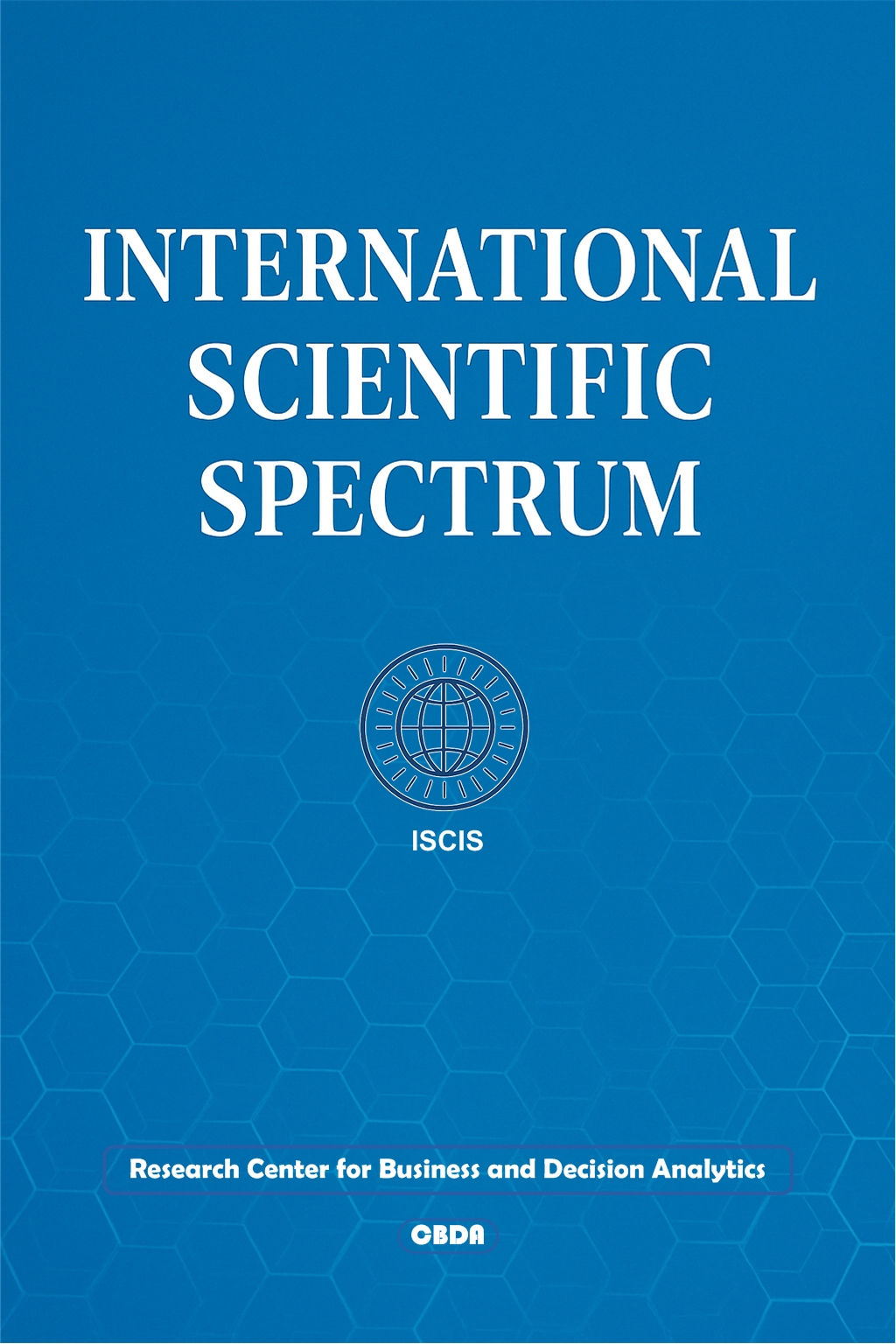About the Journal
International Scientific Spectrum is an international journal that publishes high-quality scientific original research and review papers. The scope of the International Scientific Spectrum journal covers the following areas of interest:
- Environmental engineering topics related to air quality management, carbon footprint assessment, circular economy, desalination technologies, environmental impact assessment, environmental safety, environmental toxicology, industrial emission control, resource management, risk assessment, soil remediation, sustainability reporting, waste management, wastewater treatment, etc.
- Economics research topics related to artificial intelligence usage in business, biodiversity finance, carbon pricing, corporate finance, corporate social responsibility, digital marketing, eco-taxation, green entrepreneurship, healthcare system financing, human resource management, innovation economics, innovation ecosystems, operations management, organizational behavior, project management, resource economics, etc.
- Computer science topics related to augmented reality/virtual reality integration, biodegradable electronics, brain–computer interfaces, carbon-aware computing, explainable artificial intelligence in computer engineering, Internet of Everything, neuromorphic computing, quantum computing hardware, sixth-generation wireless communication networks, wearable computing systems, societal impact of software systems, etc.
- Mechanical engineering topics related to computational mechanics, cyber-physical systems, intelligent manufacturing, machine learning for design optimization, predictive maintenance, smart materials, sustainable mechanical engineering, etc.
- Civil engineering topics related to carbon capture and storage in construction projects, carbon-neutral materials, construction and demolition waste management, life-cycle assessment and sustainable design, machine learning models for predictive maintenance, renewable energy and infrastructure development, resilient and environmental design for hazard conditions, robotics in construction, smart building monitoring, smart materials, urban green roofs, etc.
- Sustainable transportation engineering topics related to alternative fuels, autonomous vehicles, blockchain in logistics security, emerging urban mobility plans, equity in transportation and traffic systems, future mobility, green and smart transport networks, green logistics optimization, low-carbon mobility solutions, mobility as a service, non-motorized transportation, shared mobility, smart transportation and traffic management systems, transportation analytics, etc.
- Electrical engineering topics related to advanced charging infrastructure, artificial intelligence in electrical systems, electric vehicles, emerging energy storage systems, intelligent power networks, renewable energy systems, secure Internet of Things, smart energy management, and other emerging fields.
General Journal guidelines for authors
International Scientific Spectrum publishes research articles, reviews, short communications, and case studies. Research articles must include: motivation for the work, an adequate overview of the representative work in the field including up-to-date references, a clear statement of the novelty in the presented research, suitable theoretical background, one or more examples to demonstrate and discuss the presented ideas and, finally, conclusions. Short communications are usually 4-7 pages long, research articles and case studies 8-14 pages, while reviews can be longer. Page number limits are not strict and, with appropriate reasoning, the submitted articles can also be longer or shorter. Authors are requested to follow the ARA guidelines and strictly format their manuscripts as per the article template that is available here.
If extensions of previously published conference papers are submitted, Editors will check if sufficient new material has been added to fulfill the journal standards and qualify the submission for the review process. The added material must not have been previously published. New results are desired but not necessarily required; however, the submission should contain expansions of key ideas, examples, elaborations, etc., of the conference submission.
ARA’s acceptance rate is 26%. In 2025, the median time from submission to acceptance for all articles was 57 days, and 6 days from acceptance to online publication in the ONLINE FIRST section. The ONLINE FIRST section of ARA lists the papers accepted for publication and copy-edited but not yet assigned to an issue.
Aims and Scope: The principal aim of the journal is to bring together the latest research and development in various fields of decision science. We would like to highlight that papers should refer to Aims and scope, but they are not limited to.
Publication Frequency: One issue per year is published online, but processed and accepted papers, with full bibliographic data, are added to the issue continuously over the whole year.
Open Access: This is an open-access journal which means that all content is freely available without charge to the user or his/her institution. Users are allowed to read, download, copy, distribute, print, search, or link to the full texts of the articles in this journal without asking prior permission from the publisher or the author.
Publication fee: There is no submission charge or publication fee. Publication in ARA is free of charge for the authors.
The International Scientific Spectrum is annually classified by the Ministry of Education, Science and Technological Development of the Republic of Serbia.



